Delta Airlines – 2018 Service Dog Policy
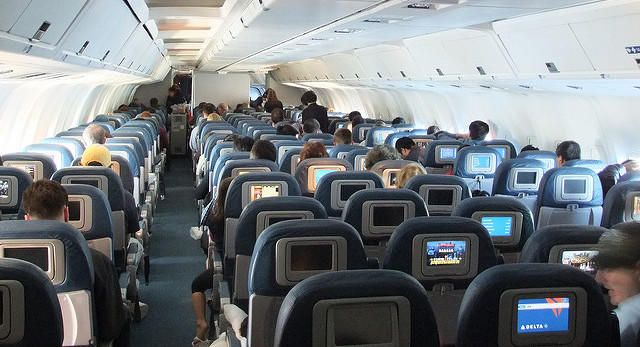
Delta carries approximately 250,000 Service and Emotional Support Animals each year. However, as of March 01, 2018, they are tightening their policy for these working animals in an effort to reduce “misbehavior” by dogs (and other creatures). Although the carrier is required by law to admit Service animals and ESA’s into the cabin of the craft, they can and are putting extra rules into place.
What is the new policy? How does this affect those with disabilities that need a Service Dog? Read on for the important facts you will need to know before you book your next flight with Delta.
What is a Service Animal?
There is a difference between a Service Animal and an Emotional Support Animal. Service animals are typically dogs that have been trained to perform a specific task for an individual with a disability. This can be any number of things from picking up dropped items to opening doors, to alerting the person to an oncoming medical situation.
The Emotional Support Animal, on the other hand, is there only to provide the individual with comfort and support. These can be of any species of animal and do not need to be trained for a specific service, other than comfort.
Why is Delta Changing Their Service Dog Policy?
Delta has seen a surge of 150 percent in service animals (that by Federal law must be allowed to fly uncaged and at no additional cost to the passenger) since 2015. However, there have been incidences of customers “attempting to fly with comfort turkeys, gliding possums known as sugar gliders, snakes, spiders and more.”
This has increased the complaints from Delta passengers concerning allergies, and other disturbances, as well as abuse to the Service Dog policy, with some of these clients just trying to fly their pets for free.
With an average of more than 200 service animals and 500 support animals flying on a daily basis, and the fact that in-flight incidences with these types of animals have risen 84 percent since 2016, Delta felt the need to change-up their policies.
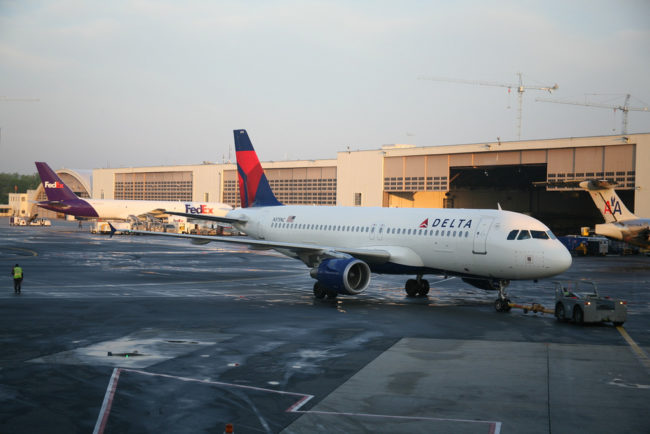
Delta said; More untrained animals are being brought onto planes, where they urinate, defecate, bark, growl, lunge and exhibit other behavior uncommon among companions that are properly taught.”
What is the New Delta Policy Regarding Service Dogs and Emotional Support Animals?
As of the first of March 2018, Delta will require all passengers with service dogs or emotional support animals to submit proof of health or vaccinations. This will have to be done through Delta’s website 48 hours before flight time.
Those customers requiring an ESA or Psychiatric Service Animal must (in addition to the health record) sign a document stating the animal’s “ability to behave in the cabin or risk being barred from boarding or removed from the plane.”
However, Delta does not require any proof that the animal has graduated from obedience school. But be aware that you will need to provide a letter prepared and signed by your licensed mental health professional explaining why you need an ESA to accompany you on the flight.
Where can I get the new Delta service dog forms?
Before you fly with Delta, be sure to visit their website to download the proper forms you will need before your flight. The new Delta service dog travel forms can be accessed here.
Behaviors Delta Will Not Tolerate
With these stricter policies, Delta urges those folks traveling with animals in the cabin of the aircraft to have their “working” animals under control at all times. Behaviors that will not be tolerated include;
- Growling
- Jumping on passengers
- Relieving themselves in the gate area or cabin
- Barking excessively, not in response to a handler’s need or distress
- Eating off seat back tray tables
Delta reserves the right to refuse transportation for any animal exhibiting unruly behavior.
Conclusion
If you are planning a trip on Delta airlines and need a Service or an Emotional Support Animal, be sure to have your animal’s health or proof of vaccination certificate. If you are traveling with an ESA or psychiatric service animal, you will also need a note from your mental health professional stating your need for the animal. Be sure to visit Delta’s website for further downloads and let them know you will be traveling with a “working” animal 48 hours prior to your flight. To register your service animal and receive your service dog certification, complete the registration in the link below.
About the Author: The writing team at Service Dog Certifications is made up of folks who really know their stuff when it comes to disability laws and assistance animals. Many of our writers and editors have service dogs themselves and share insights from their own experiences. All of us have a passion for disability rights and animals.
3 comments
Leave a Reply Cancel reply
Latest Posts
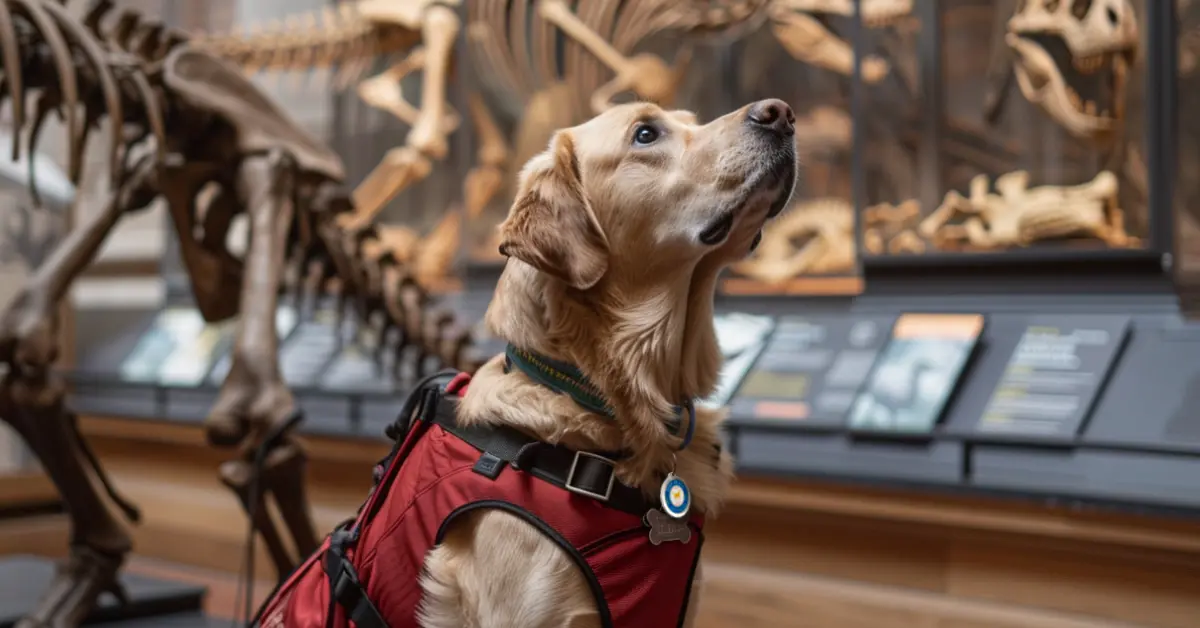
Can you bring a service dog to a museum?
Yes, you can bring your service dog to the museum! All the major U.S. museums welcome guests with service animals in accordance with the Americans with Disabilities Act (ADA). There are some areas, however, that might be off-limits. Here’s what you should know if you plan to spend a day at the museum with your […]

Read More

How to Bring a Service Dog to Six Flags Magic Mountain
Service dogs are welcome at Six Flags Magic Mountain so long as they are, according to Six Flags, “trained to do work or perform tasks for people with disabilities.” Of course, your dog must be housebroken and remain on a leash or harness and under your control while at the park — and the park […]

Read More
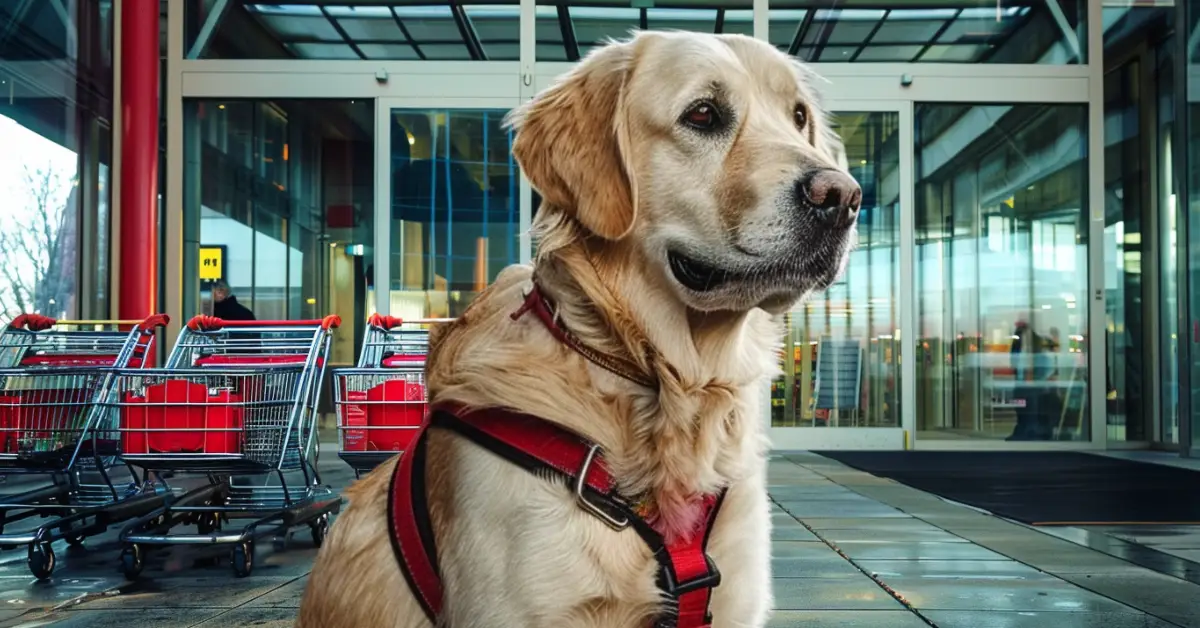
When Stores Can Refuse Your Service Dog
According to the Americans with Disabilities Act (ADA), service dogs should be allowed into any store most of the time. A store owner can legally exclude a service dog if they are actively growling, snapping at, or frightening customers, or if the dog is obviously out of the control of its owner. Ordinary behaviors — […]

Read More

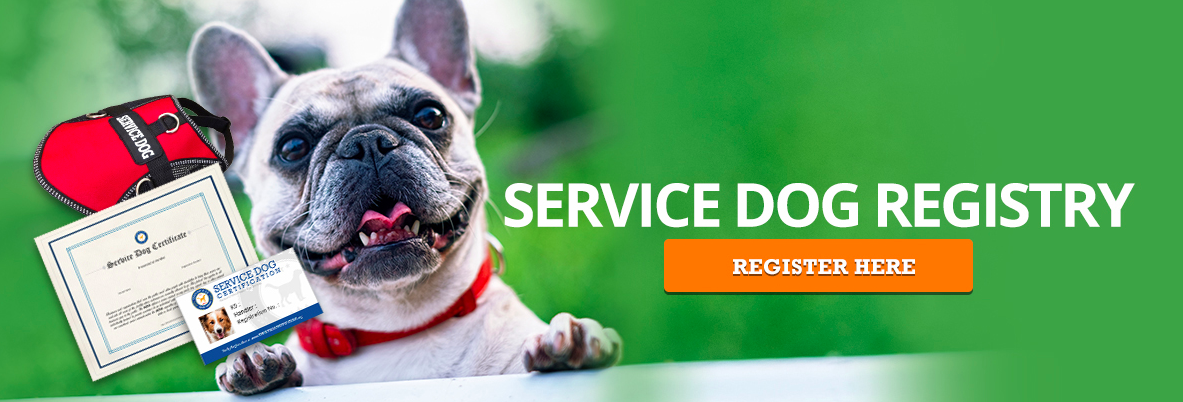
According to the ADA a psychiatric service dog is NOT a emotional support animal as defined but Title II and Title III of the American Disability Act, they are considered a service dog. Why would they have to have different documentation than a service dog? I do not understand.
Service Animal Defined by Title II and Title III of the ADA
A service animal means any dog that is individually trained to do work or perform tasks for the benefit of an individual with a disability, including a physical, sensory, psychiatric, intellectual, or other mental disability. Tasks performed can include, among other things, pulling a wheelchair, retrieving dropped items, alerting a person to a sound, reminding a person to take medication, or pressing an elevator button.
Emotional support animals, comfort animals, and therapy dogs are not service animals under Title II and Title III of the ADA. Other species of animals, whether wild or domestic, trained or untrained, are not considered service animals either.
Thank you. I will await your reply
I know they really need to fallow the ADA
A puppy is getting on the plane from LAX to JAX. It is untrained and whining in Sky Club.
How can this be acceptable?